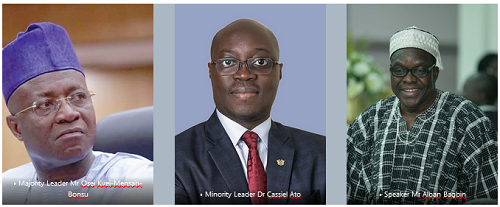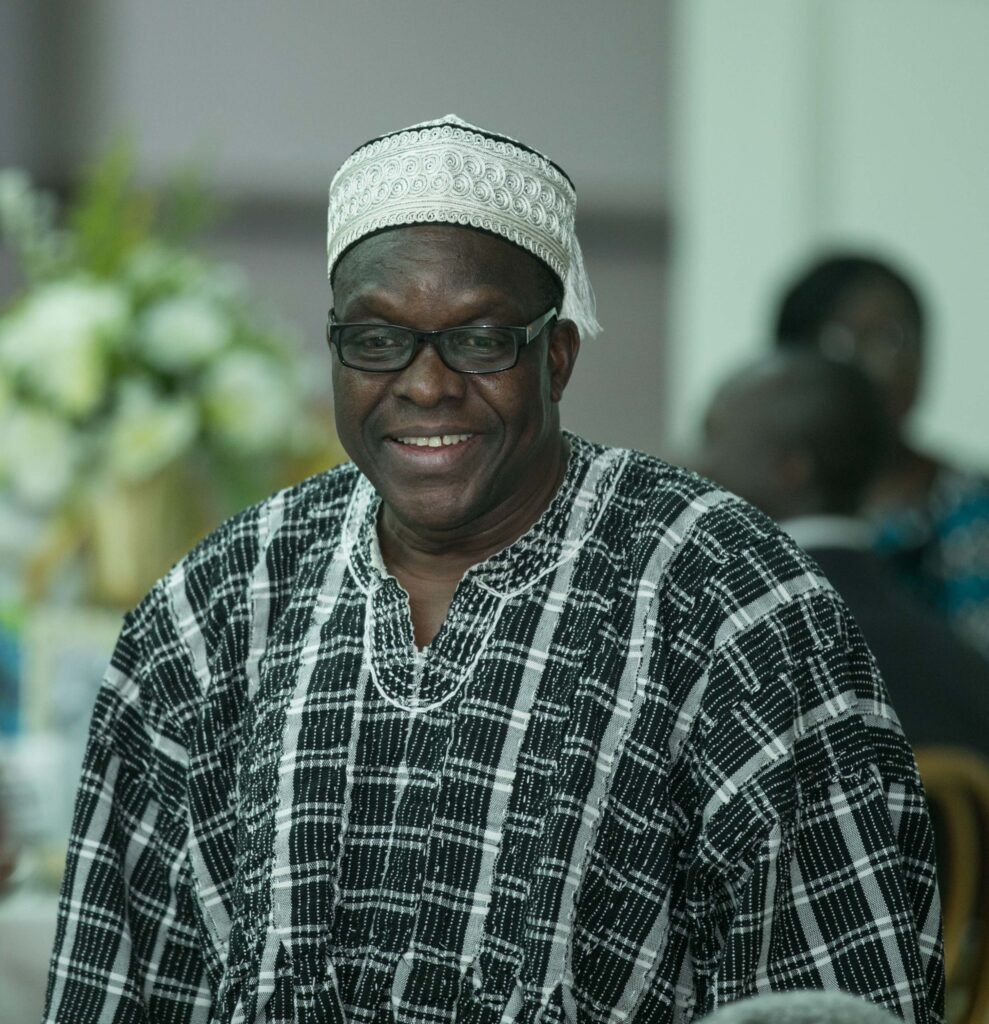Features
Tension in Parliament unnecessary

The legislative arm of government forms an important part of government and aims to play a crucial role in the socioeconomic development of a country. This role is undertaken to ensure that issues relating to law and order are carried out in a manner that seeks to bring about peace and orderliness in all parts of the country.
A major function of the legislative arm of government is deliberation over matters that are of public interest for the good of the nation. This function allows members of parliament to freely discuss issues arising in any part of the state to ensure orderliness for the overall good of the citizenry.
Another major function is lawmaking. Without the appropriate laws, no activity can be properly regulated for the purpose of ensuring decency and the achievement of good results. This is why all the laws of the state are deliberated upon when introduced to ensure that only good laws are passed for the betterment of the country.
All Members of Parliament have been given the power to freely discuss their views when certain issues come up. By allowing free ventilation of views, the MPs are encouraged to touch on every issue of importance. This also explains why all MPs enjoy legislative immunity.
The immunity is meant to protect them from attacks from the public. This protection is important, and this explains why anything said on the floor of Parliament cannot be used against any of the MPs. However, any adverse comment should be made in the House of Parliament, not outside it.
What this means is that if an MP makes adverse remarks about someone at the Accra Sports Stadium or Babayara Sports Stadium in a manner that is unfair to anybody, the person concerned can pick up the matter and sue the MP who made the unfair remark about him or her. The MPs are very aware of this, so they are always measured in the comments they make outside Parliament.
Not long ago, the Speaker of Parliament, Rt. Hon. Alban Bagbin, had cause to advise all MPs to be careful about comments they make outside Parliament. The Speaker explained, and he was right in doing that, referring to the issue of immunity for parliamentarians. It is hoped that our MPs will take this advice seriously and refrain from defamation or character assassination outside Parliament. We thank the Speaker for this good advice.
In light of the role of Parliament, it can be seen that the MPs are playing a good role in the development of the country. In fact, nothing can move smoothly without their input.
One problem that is of major concern to the public, however, is the needless tension that occasionally characterises deliberations in Parliament. The MPs engage in acrimonious deliberations with one another in a manner that suggests that the world will come to an end in the next five minutes. Attacks on each other may be said to be part of their parliamentary style, but this is still unacceptable, seeing that a noble place like Parliament serves as a good training ground for morality for viewers and listeners of parliamentary proceedings.
Sometimes the real motive for this can be seen as political, where one group of people may want to score political points over members of the opposing side. Such moves are not good and must be avoided at all times.
MPs from all parts of the country are all brothers and sisters who must acknowledge and respect one another as children of God. If this principle is followed by all the MPs, disagreements will arise, but they will be devoid of needless tensions that are destructive to social and political development.
Not long ago, the Minority in Parliament, for example, received instructions from their party leadership not to approve nominations of Ministers brought to them by the President of the Republic. The purpose of this action and directive was said to be that the size of government had been bloated.
This assertion cannot be true because the current number of Ministers is smaller compared with previously, as was experienced under the previous government before the coming into power of President Akufo-Addo.
The deliberations in parliament were delayed and went deep into the night of March 24, 2023. For some of us, this could have been avoided without any tension in Parliament.
At the end of it all, after a hectic session, the Ministers were approved together with the Justices of the Supreme Court.
It became clear that some NDC MPs voted to approve the Ministers whose names were submitted to Parliament. There is a range of 21 to 31 MPs on the Minority side who voted to approve the Ministers.
This has brought about high tensions in the NDC, and some of them have called those MPs traitors. There is a young man who wants to stand as MP in the Bibiani-Ahwiaso-Bekwai Constituency in the Western North Region, and this young man openly attacked his own MPs, claiming that they would fish them out and sack them from the party. If this is what this prospective MP has in mind, then he should know that he cannot succeed in his own party. People are free to make their own choices, even if they belong to political parties that expect them to behave in a certain way. However, attacking and insulting MPs as if they do not have minds of their own is not good and should not be entertained.
On March 24, 2023, the Speaker of Parliament was put in a fix. He tried to play fair to both the Majority and Minority sides. On that occasion, it became clear that the work of the Speaker is not an easy venture to undertake, for which reason we need to pray for him at all times. While praying for him, all the Members of Parliament, together with their party officials, should also take practical steps to promote unity, peace, and tolerance, as well as peaceful co-existence with all political factions in Parliament, so that peace will prevail in Ghana.
The issue of bribery raised by some NDC members against their own Members of Parliament should be dropped because it will only escalate tension within the party. If this advice is accommodated in a peaceful and positive manner, it will bring about peace within the NDC.
Differences in parliamentary debates are always welcome, but they should be carried out within the framework of peace and tolerance for one another.
Email address/whatsApp number of author: Pradmat201@gmail.com (0553318911)
Majority Leader Mr Osei Kyei-Mensah-Bonsu
Minority Leader Dr Cassiel Ato
Speaker Mr Alban Bagbin
Features
Traditional values an option for anti-corruption drive — (Part 1)
One of the issues we have been grappling with as a nation is corruption, and it has had such a devastating effect on our national development. I have been convinced that until morality becomes the foundation upon which our governance system is built, we can never go forward as a nation.
Our traditional practices, which have shaped our cultural beliefs, have always espoused values that have kept us along the straight and the narrow and have preserved our societies since ancient times.
These are values that frown on negative habits like stealing, cheating, greediness, selfishness, etc. Our grandparents have told us stories of societies where stealing was regarded as so shameful that offenders, when caught, have on a number of instances committed suicide.
In fact, my mother told me of a story where a man who was living in the same village as her mother (my grandmother), after having been caught stealing a neighbour’s cockerel, out of shame committed suicide on a mango tree. Those were the days that shameful acts were an abomination.
Tegare worship, a traditional spiritual worship during which the spirit possesses the Tegare Priest and begins to reveal secrets, was one of the means by which the society upheld African values in the days of my grandmother and the early childhood days of my mother.
Those were the days when the fear of being killed by Tegare prevented people from engaging in anti-social vices. These days, people sleeping with other people’s wives are not uncommon.
These wrongful behaviour was not countenanced at all by Tegare. One was likely going to lose his life on days that Tegare operates, and so unhealthy habits like coveting your neighbour’s wife was a taboo.
Stealing of other people’s farm produce, for instance, could mean certain death or incapacitation of the whole or part of the body in the full glare of everybody. People realised that there were consequences for wrongdoing, and this went a long way to motivate the society to adhere to right values.
Imagine a President being sworn into office and whoever administers the oath says, “Please say this after me: I, Mr. …., do solemnly swear by God, the spirits of my ancestors and the spirits ruling in Ghana, that should I engage in corrupt acts, may I and my family become crippled, may madness become entrenched in my family, may incurable sicknesses and diseases be my portion and that of my family, both immediate and extended.”
Can you imagine a situation where a few weeks afterwards the President goes to engage in corrupt acts and we hear of his sudden demise or incapacitation and confessing that he engaged in corrupt acts before passing or before the incapacitation—and the effect it will have on his successor? I believe we have to critically examine this option to curb corruption.
My grandmother gave me an eyewitness account of one such encounter where a woman died instantly after the Tegare Priest had revealed a wrong attitude she had displayed during the performance on one of the days scheduled for Tegare spirit manifestation.
According to her story, the Priest, after he had been possessed by the spirit, declared that for what the woman had done, he would not forgive her and that he would kill. Instantly, according to my grandmother, the lady fell down suddenly and she died—just like what happened to Ananias and his wife Sapphira in Acts Chapter 5.
NB: ‘CHANGE KOTOKA INTERNATIONAL AIRPORT TO KOFI BAAKO
By Laud Kissi-Mensah
Join our WhatsApp Channel now!
https://whatsapp.com/channel/0029VbBElzjInlqHhl1aTU27
Features
Emotional distortions:A lethal threat to mental health
Emotional distortions can indeed have a profound impact on an individual’s mental health and well-being. These distortions can lead to a range of negative consequences, including anxiety, depression, and impaired relationships.
Emotional surgery is a therapeutic approach that aims to address and heal emotional wounds, traumas, and blockages. This approach recognises that emotional pain can have a profound impact on an individual’s quality of life and seeks to provide a comprehensive and compassionate approach to healing.
How emotional surgery can help
Emotional surgery can help individuals:
Identify and challenge negative thought patterns: By becoming aware of emotional distortions, individuals can learn to challenge and reframe negative thoughts.
Develop greater emotional resilience: Emotional surgery can help individuals develop the skills and strategies needed to manage their emotions and respond to challenging situations.
Improve relationships: By addressing emotional wounds and promoting emotional well-being, individuals can develop more positive and healthy relationships with others.
The benefits of emotional surgery
The benefits of emotional surgery can include:
Improved mental health outcomes: Emotional surgery can help individuals reduce symptoms of anxiety and depression.
Enhanced relationships: Emotional surgery can help individuals develop more positive and healthy relationships with others.
Increased self-awareness: Emotional surgery can help individuals develop a deeper understanding of themselves and their emotions.
A path towards healing
Emotional surgery offers a promising approach to addressing emotional distortions and promoting emotional well-being. By acknowledging the impact of emotional pain and seeking to provide a comprehensive and compassionate approach to healing, individuals can take the first step towards recovery and improved mental health.
Join our WhatsApp Channel now!
https://whatsapp.com/channel/0029VbBElzjInlqHhl1aTU27
BY ROBERT EKOW GRIMMOND-THOMPSON






